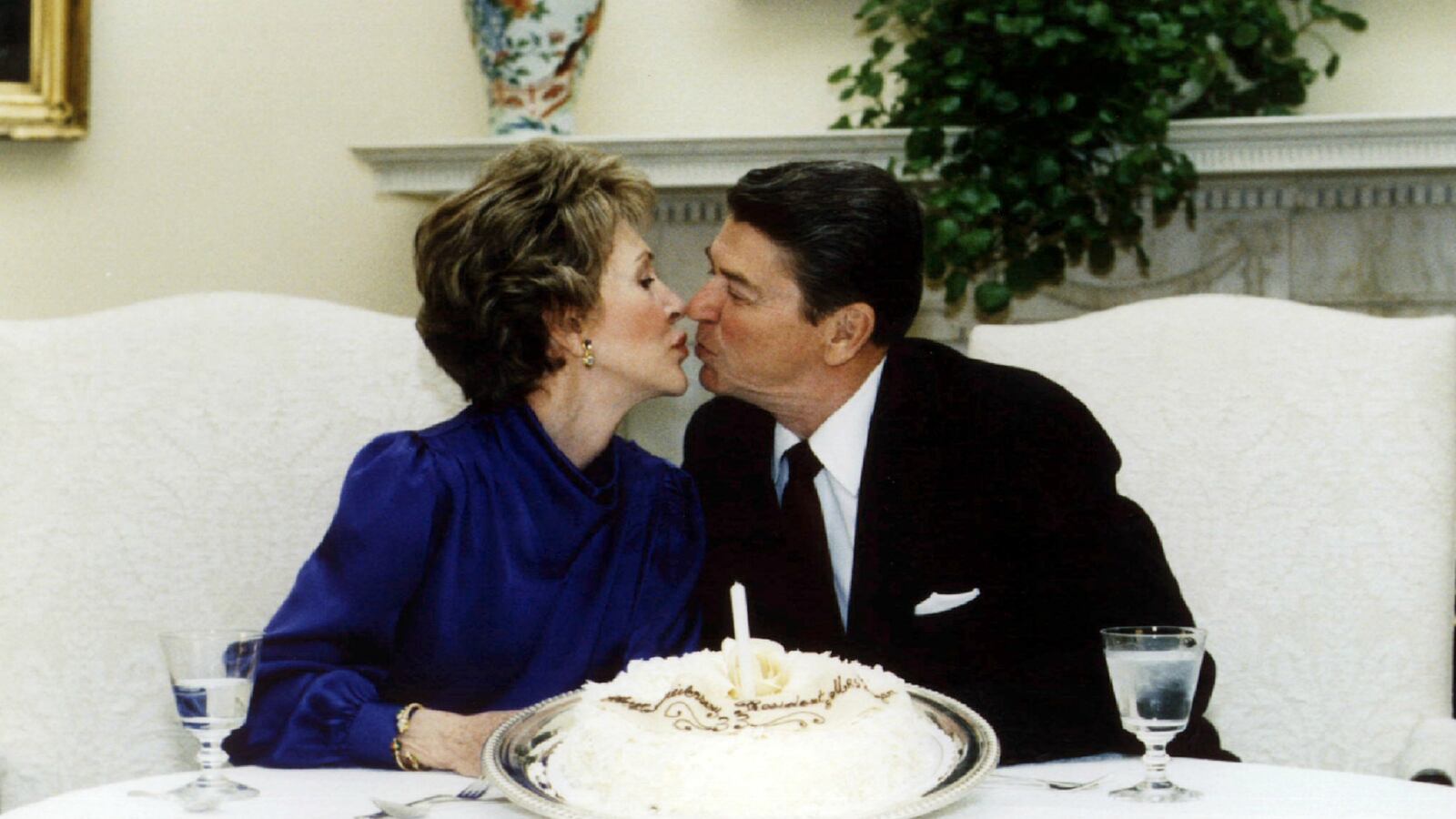Nancy Reagan became first lady during the height of the feminist movement, and women who were battling for their rights in a male-dominated world saw her as an anachronism. Reagan said her life began when she met her husband. The adoring look she focused on her Ronnie when they were in public became known as “the gaze,” adding to the caricature of her as a rich Hollywood socialite who did not understand the concerns of a generation of women coming into their own as professionals and seeking equality.
What her detractors failed to understand (and I was among them) was the substantive role she played behind the scenes at the White House in keeping her husband’s presidency on track. She took the long view in looking after his legacy, intervening through favored surrogates to keep conservative ideologues from driving the agenda. Her insistence that no president could be considered great without reaching out to Soviet leaders trumped resistance from the right wing of the GOP.
She was fiercely protective of her husband’s image, less so of her own, and she paid the price. When some of her interventions became known, particularly in the personnel department, she was cast as Lady Macbeth—even though the firings she engineered won praise. Her recruitment of admired Republican moderate Howard Baker to replace the irascible Don Regan as President Reagan’s chief of staff was seen as a masterstroke, instantly restoring credibility to a White House tarnished by the Iran-contra scandal.
Years later, with the benefit of hindsight and after watching Hillary Clinton’s failed effort to achieve health-care reform, I came to believe Nancy Reagan deserved a fairer assessment. I wrote an op-ed piece that appeared in The Washington Post on Jan. 8, 1995, with the headline “Nancy with the centrist face: Derided as an elitist, Mrs. Reagan’s impact was unequaled.” I made the point that unlike Clinton, who took an office in the West Wing and was upfront about wanting to be a player, Reagan operated undercover, usually through a surrogate, and that she was a force for good. She rarely left fingerprints, but she got the job done, and her job was to play up her husband’s strengths and cover for his weaknesses. She did both very well.
The piece concluded with this line: “She is without doubt an effective First Lady, and she may yet win our hearts.” Soon after I received a handwritten note from Mrs. Reagan saying, “I don’t really know how to say this but when something very nice comes from an unexpected source, it’s really appreciated—and if you see me in a different light now, I’m happy. I can only hope one day ‘to win the heart.’ ” Later that same year, she cooperated with a Newsweek cover about her reconciliation with daughter Patti Davis, and how the president’s Alzheimer’s disease had brought the family together after literally decades of turmoil. Another handwritten note arrived shortly after with the lighthearted comment, “We’ve got to stop meeting like this!” After sharing her thoughts and emotions on her family’s difficult times, Reagan said, “Hopefully I’m close to ‘winning the heart.’ ”
In looking back at these notes, I realize how much it meant to her to gain a measure of affection after being treated so harshly in the public eye. At a reception in her honor at the 1996 Republican National Convention, she greeted me warmly, marveling at our newfound friendship. Soon after a snapshot of us taken at the event arrived in the mail with a note from the former first lady written on her monogrammed stationery saying, “To my ‘prodigal daughter,’ ” and signed with a smiley face.
It took her husband’s long illness and her grace in caring for him to show her critics what she was made of. Rarely did she spend more than an hour or two away from him, and during the decade of his decline, she guarded his image, his legacy, and his dignity. As his cognitive powers slipped away, eldest son Michael reminded him that he used to be president. “How did I do?” Reagan replied, his characteristic humor and humility intact. In the 1994 letter to the American people in which the former president revealed his illness, he wrote, “I only wish there was some way I could spare Nancy from this painful experience. When the time comes I am confident that with your help she will face it with faith and courage.” In their life together, Ronald Reagan never worried about anything; Nancy worried about everything, carrying a burden few appreciated until the end. She didn’t have his gift for storytelling, but she made sure all the parts were in place, and by honoring him, she was true to herself, a woman for all times.






